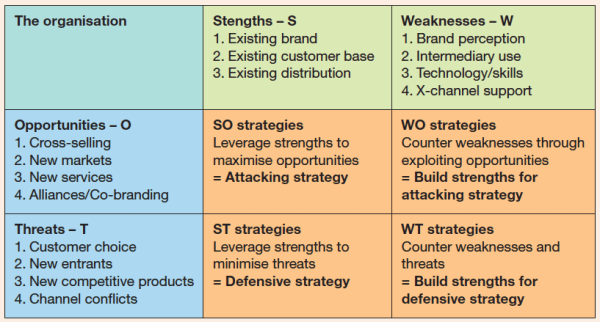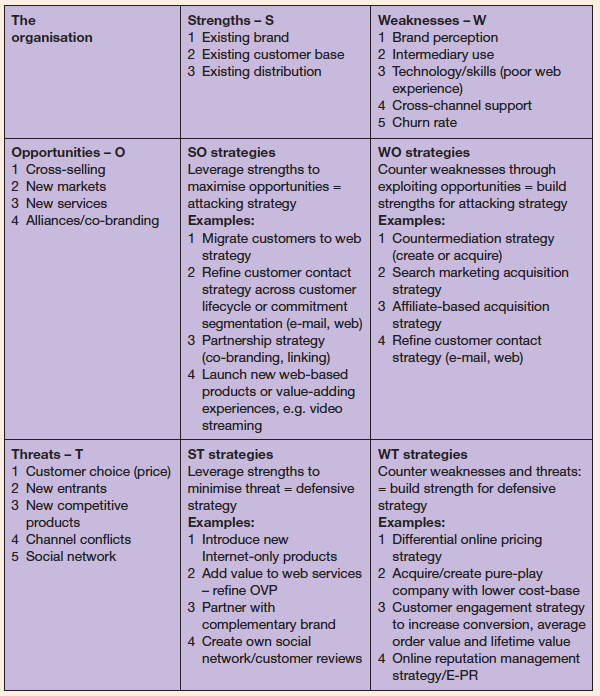5 reasons why SWOT analysis is still relevant to marketing strategy development
Over the last few years, it sometimes feels like the SWOT analysis is under attack. Only a few years ago I remember the contrarian views of Mark Ritson in his column for Marketing Week when he started knocking SWOT analysis, a technique that I continue to use and recommend for creating digital marketing strategies.
Here's a flavour of his views, from the post for Marketing Week which was expanded on in a post for Australia's B&T titled the utter pointlessness of SWOT, Ritson said:
"The big clue to the utter pointlessness of the SWOT approach can be gleaned from its total lack of value to any marketer".
He was talking about the application in the real-world and bemoaning why it is still taught in universities and colleges. I'd certainly agree - if it doesn't work in the real world, it shouldn't be taught - but I think it does still hold value if applied in the right way. Now that's true of a lot of tools. Misapplied or in the wrong hands they don't work.
Why SWOT analysis is valuable
Since our focus at Smart Insights is developing digital marketing strategies, my arguments are based on developing a digital channel-specific SWOT, but my five arguments showing the value of SWOT apply equally to development of overall marketing strategy.
1. SWOT is a strategy development tool
We've seen in several polls that many companies don't have a digital marketing strategy.
So, a technique that can help inform strategy and communicate it more effectively has to be better than no strategy at all. The beauty of this tool is in its simplicity - you can engage non-digital specialists with the key issues facing a company without getting bogged down in analytics reports. A simple tool is valuable for explanation, buy-in and carrying others with you.
Not pointless.
2. SWOT analysis informs strategy
Or at least it should. I'd agree with Mark that the conventional simple form of SWOT only looks at analysis, not strategy. If SWOT analysis just includes the 4 areas of S-W-O-T as a four box matrix, then it's like to get left on a shelf and rightly ignored.
That's why I always recommend using this form of SWOT analysis, often called the TOWS matrix:

The TOWS matrix approach has the internal strengths and weaknesses and external market opportunities and threats, but also the 4 types of strategy that can be reviewed for the future.
3. SWOT is informed by marketplace research - it's outward looking
Or at least it should be... It encourages analysis of the factors that impact a company, starting with customers, then competitors and other marketplace players like media and publishers. Then going on to external macro-forces like PEST.
Just so I don't misrepresent Mark Ritson, or he doesn't misrepresent himself through his eye-catching headline, Ritson isn't saying that analysis or research isn't valuable, simply that SWOT is a poor technique. He points to these other ten marketing analysis techniques which I recommend taking a look at. I'd also suggest you need a way of summarising the output from these more complex analysis techniques. A SWOT can help here!
In my experience, many companies are too involved with executing campaign tactics to make the time to look outwards at the changes happening in the marketplace in a structured way.
Of course this is particularly important in the fast-moving environment of digital marketing. Competitors can be eating your lunch through innovative use of digital tactics like search, social media and mobile marketing.
The other benefits of SWOT are in common with many other analysis or strategy development tools, so I'll keep these brief:
4. SWOT generates ideas for key strategies
Using the TOWs format, the SWOT analysis can be used in training and strategy development sessions to think through alternative strategies and priorities. You can argue that some of these may be obvious, but it can help senior management buy-in if these ideas are worked through by a team, rather than just presented.
Take one example from this diagram, discussing counter-mediation helps companies think about ways of increasing their digital footprint through partnering with or acquiring publishers, something I find is often missed in web strategy.

5. SWOT provides focus
After the SWOT has been created, companies can then summarise the key issues that need to be faced and look at the cost-benefit of different communications approaches and place them on a roadmap.
What do you think? How do you use SWOT? Is it just for theory and best ignored in favour of tactics or other strategy development tools?










